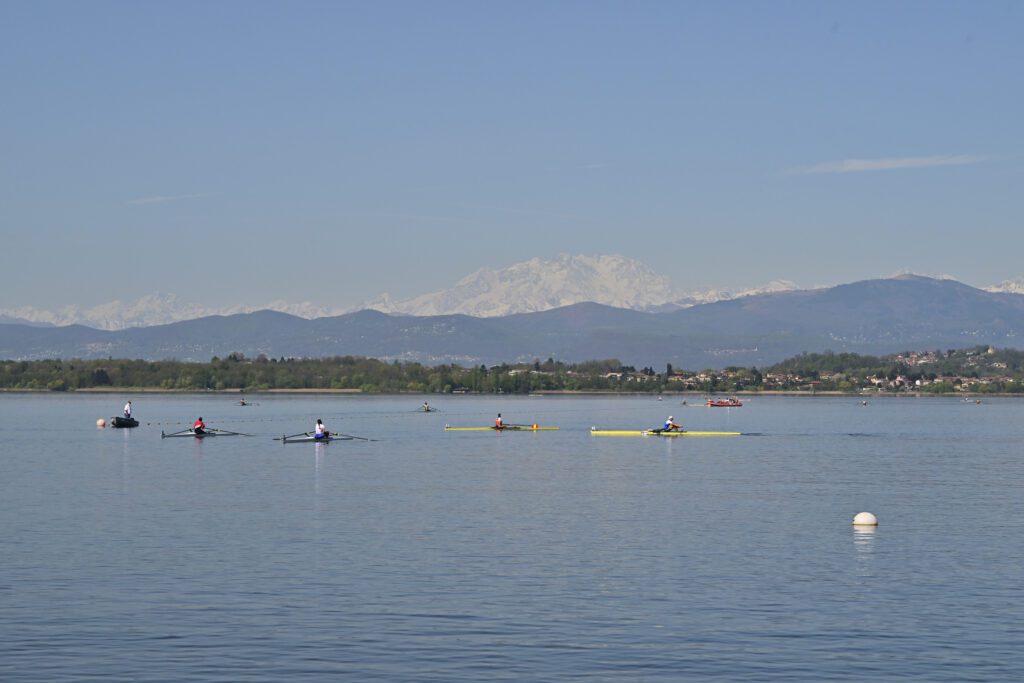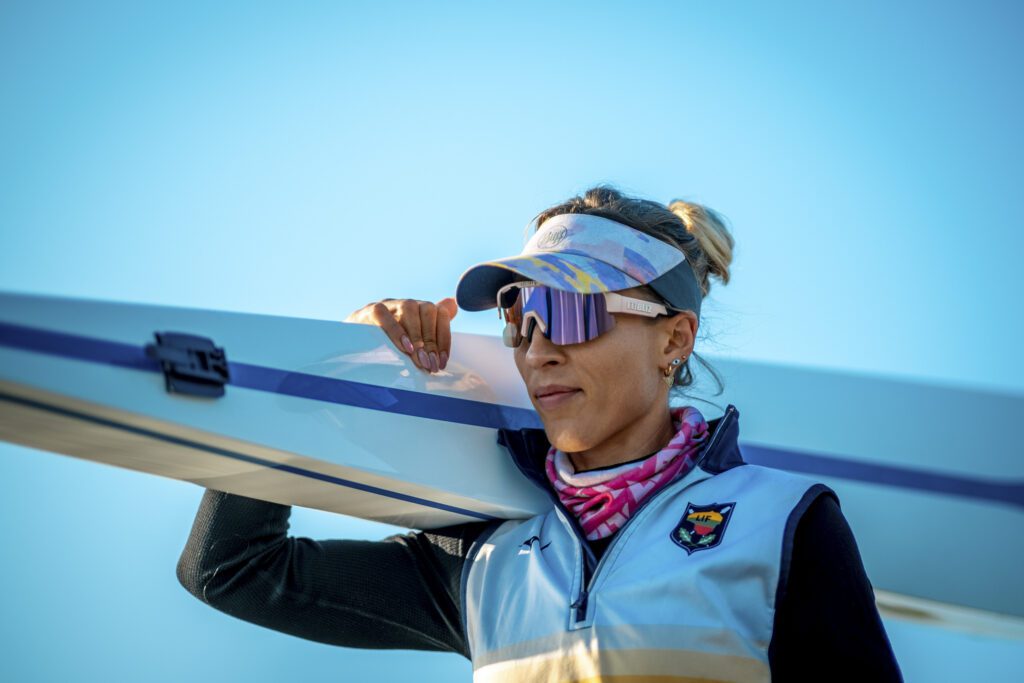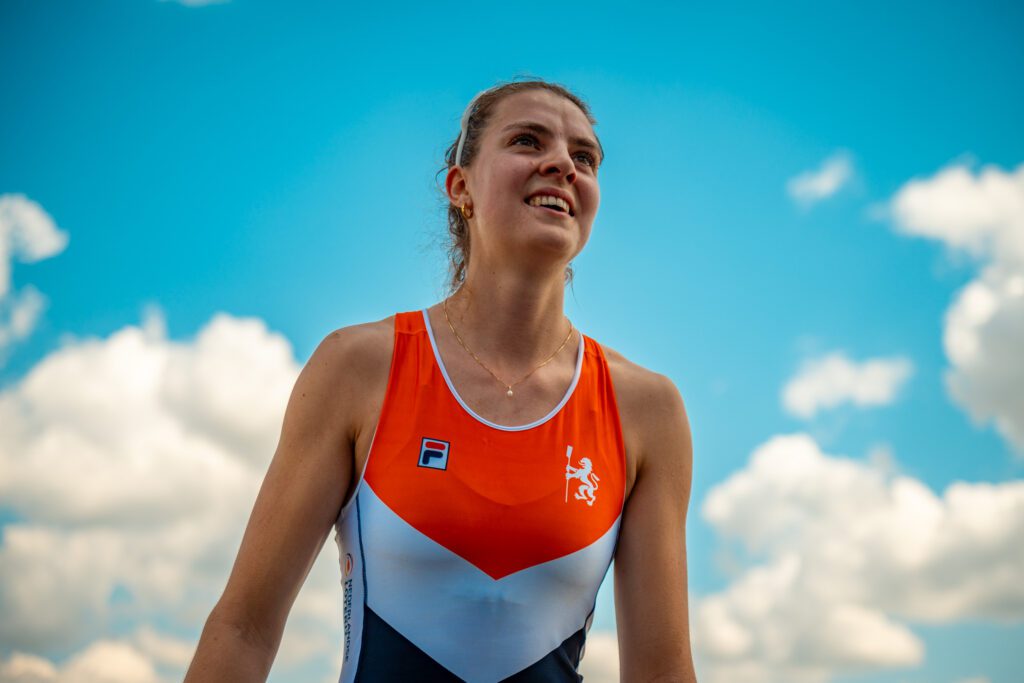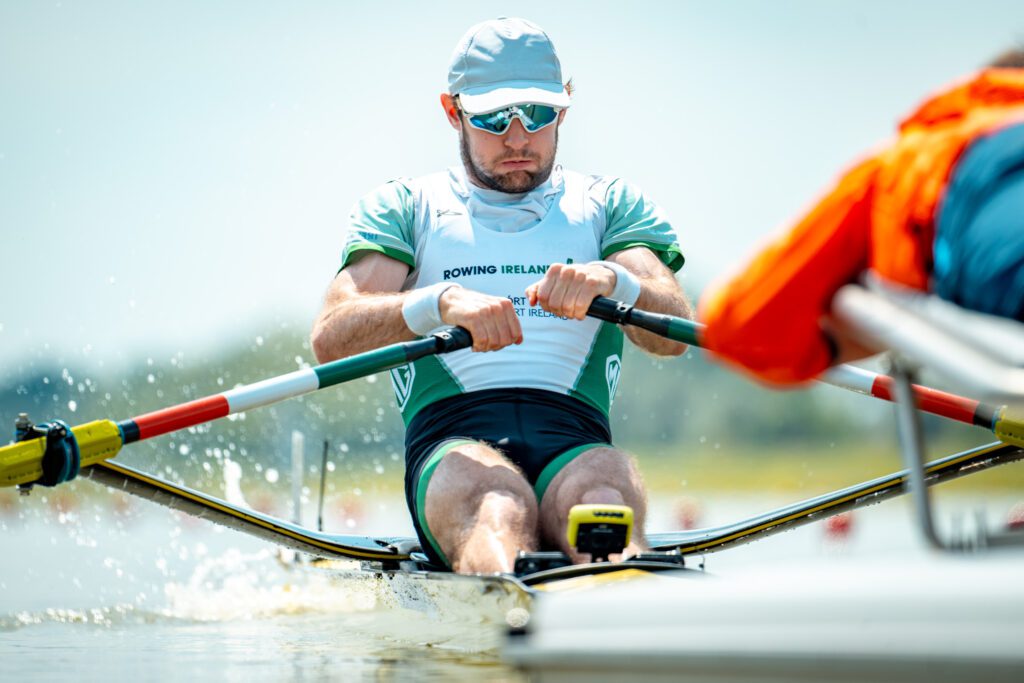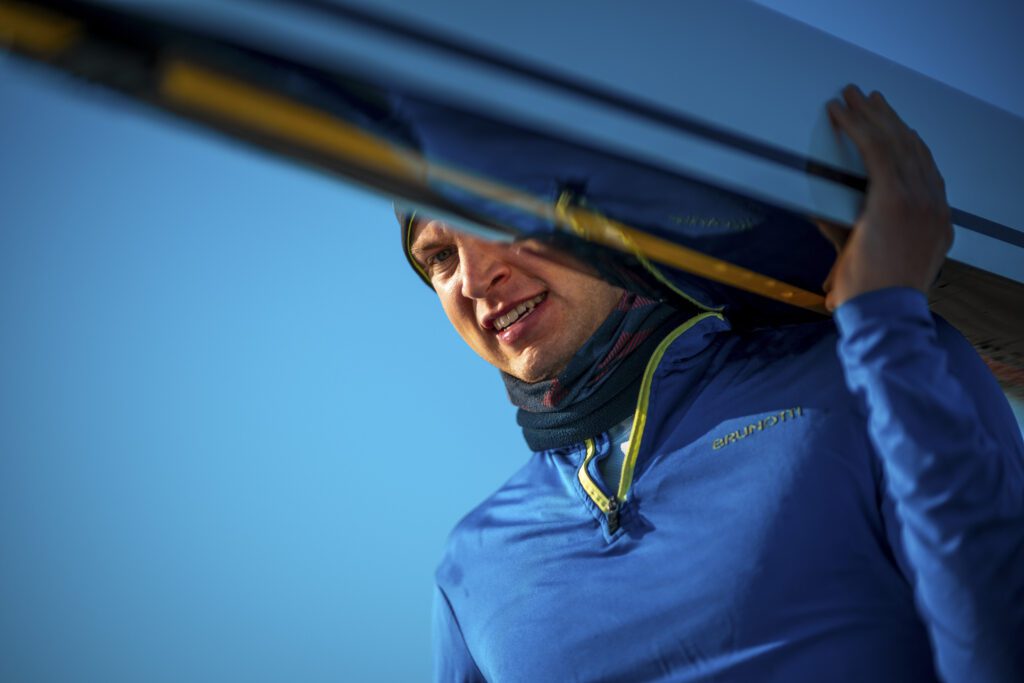The first strokes of the 2024 season were taken at Lago di Varese, aka one of the nicest venues for rowing training camps. Always a beautiful natural lake overlooked by distant snow-capped mountains, this year it is mostly calm and flat (not always the case) but full to bursting after the spring rains and, presumably, melting snows from nearby glaciers. The grandstands are currently built out over what is now water, and some of the usual bank paths around the lake are flooded or sodden, making getting around the finish area a bit trickier than usual.
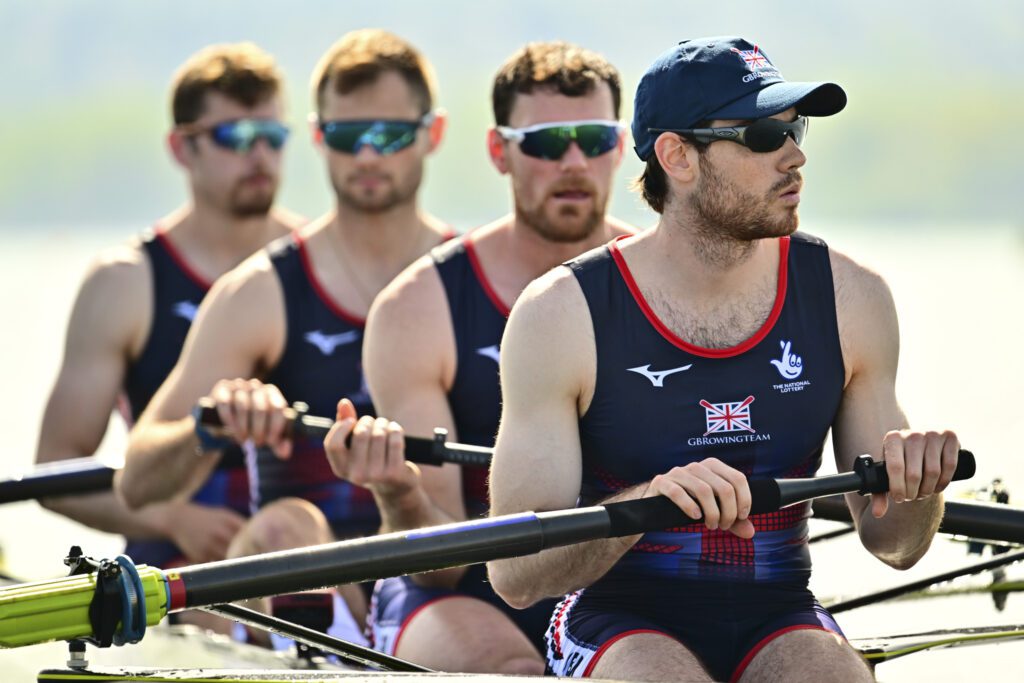
Photo GBR M4-
Credit Benedict Tufnell
This didn’t put off the rowers, who shared out the wins in some typical early-season racing. Stalwarts like German sculler Olli Zeidler, Dutchwoman Karolien Florijn and the British men’s eight rolled through their heats with minimal fuss, but other results were a bit up and down. A case in point was the women’s singles, where Sanita Puspure made her long-awaited reappearance in a single, winning her heat by a useful couple of seconds (and not too far behind Florijn) but Germany’s top single Alexandra Foester was pushed out of the heat qualifying places by her team rival Juliane Faralisch, racing as GER2, and then had to reach the semis via an unspectacular repechage.
In the women’s crew boats Britain and Australia were doubling up, racing in both the four and the eight, which led to some potentially misleading margins and much careful conservation of energy. The Brits came out on top of that one, going GBR1 > GBR2 > GBR3 ahead of half of the Aussie posse in their W4- heat, and then swanning down the lake in the eight with clear water over Germany while the Australian eight came fourth of four at all timepoints in their heat. However they are from the “Australia A” team, the U23 and development group, who are not likely to be seen in Paris at the Games. Despite this Anneka Reardon and Georgia Miansarow in the AUS development LW2x came impressively close to beating regular world-level finalists Jill Moffatt and Jennifer Casson from Canada in a 0.02 second photofinish. “Once we got ahead we felt quite confident,” said Moffatt. “Then all of a sudden there’s fireworks happening. We were lucky that we didn’t get totally caught out.”
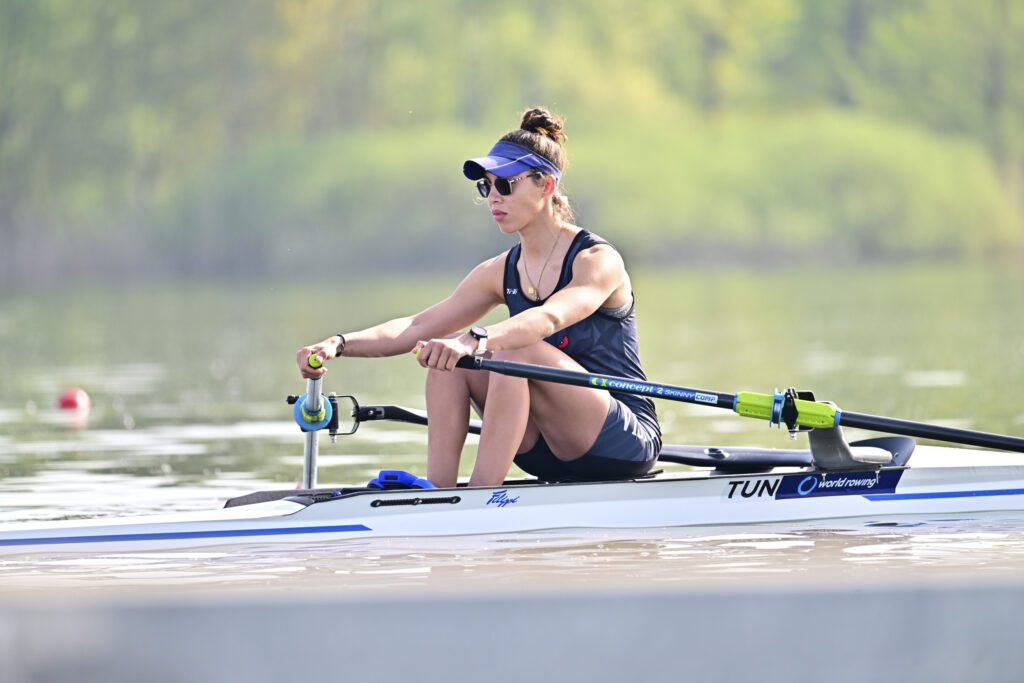
Photo TUN LW1x
Credit Benedict Tufnell
It’s worth bearing in mind that countries vary a lot in how they approach the first World Cup. Some taper, others push on through a full training load. Here in Varese it looks likely that Italy has prioritised the event, and single scullers have a tendency to peak whenever works for them personally, but many of the squads will put on more speed during the season, meaning finish places will go up and down over the next few weeks due solely to training arc, let alone talent. Meanwhile anyone who hasn’t yet qualified for Paris will be on a totally different training pathway, needing to be on their very best form for the middle of May.
Ukraine’s scullers were on form, their women’s quad staying ahead of the Dutch in the six-boat preliminary race, whilst Mykola Kalashnyk handily won a very tight M1x quarterfinal and their women’s singles also both qualified for the A/B semis. The Ukrainian M4- were squeezed out of an automatic qualification in a quick race during which Italy’s top crew annoyed the reigning world champions Britain by ending their 21-race winning streak, while the other M4- heat went to last year’s B-final Swiss crew, unchanged, a snip ahead of Germany and a new Dutch selection.
Row360 coverage of the 2024 World Rowing Cup Series
The men’s quads saw several unchanged crews, of which the best were the Dutch, still lording it over the pack and duffing up the Swiss and a tweaked German outfit in heat one. Heat two saw Britain’s adjusted line-up (gaining veteran Graeme Thomas as George Bourne moves to the men’s single) doing a confident number on Italy’s 2023 silver medallist crew with Australia’s hopefuls, who failed to qualify for the Olympics last summer, close behind in third.
Elsewhere the imminent vanishing of lightweight rowing from the top table was foreshadowed by a tiny lightweight singles entry — mostly supporting lightweight doubles crews aiming for Paris — leading to races for lanes in both singles heats. The lightweight doubles races were feistier, world champions Emily Craig and Imogen Grant (GBR) posting the quickest women’s time by a couple of lengths and the men’s victories in the absence of world champions Ireland shared more evenly between Italy’s home hopes Stefano Oppo and Gabriel Soares, and the Swiss world runners-up from 2023, Raphael Ahumada Ireland and Jan Schaeuble. Who joins them in the final will be decided tomorrow.
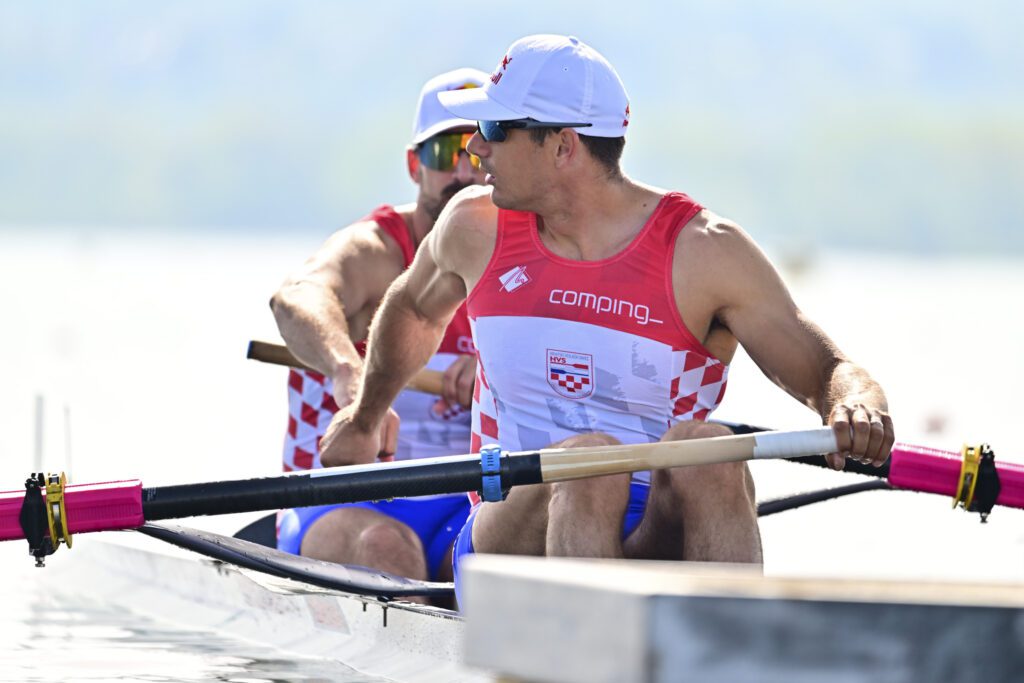
Photo CRO M2-
Credit Benedict Tufnell
Chasing Olympic gold in a slightly unconventional way are Croatia’s famous Sinkovic brothers, who rather unexpectedly switched back from the double to the pair in November, pushing team-mate twins Patrik and Anton Loncaric, neither of whom have sculled internationally, back into the M2x. Since they went into the pair from the double to challenge themselves for Tokyo and looked exhausted after a five-year pandemic-hit campaign before returning happily to the sculling boat, this was an odd switch, but became more likely when Dutchmen Melvin Twellaar and Stef Broenink swiped the doubles crown the Croatians had started to see as theirs by right, at last year’s worlds in Belgrade.
The outcome in Varese may not have been everything the Croatians wished, with Switzerland’s reigning world champions Roman Röösli and Andrin Gulich claiming the pairs heat win by clear water over the Sinkovics. But Martin and Valent Sinkovic never transferred as easily to the pair as they had back to the double, and there will be more chances to try their luck. “The Swiss were better than us,” said Martin afterwards. “We’ll see what we can do better and try and make it to the final. I think we are more stable in the boat [than before] so we have a good feeling.”
And there should be an honourable mention for Swiss lightweight Andri Struzina, who is racing openweight M1x here to give himself an extra challenge, since he hasn’t managed to dislodge either of his team-mates from the Swiss lightweight double in selection this season. He did an excellent job to come second to George Bourne (GBR) in his opening heat and then third behind Zeidler and Brazil’s Lucas Verthein Ferreira in the quarterfinal, so progresses to the semis in one of the regatta’s most interesting events while Olympians such as Kjetil Borch (NOR) and Gennaro di Mauro (ITA) failed to do so.
